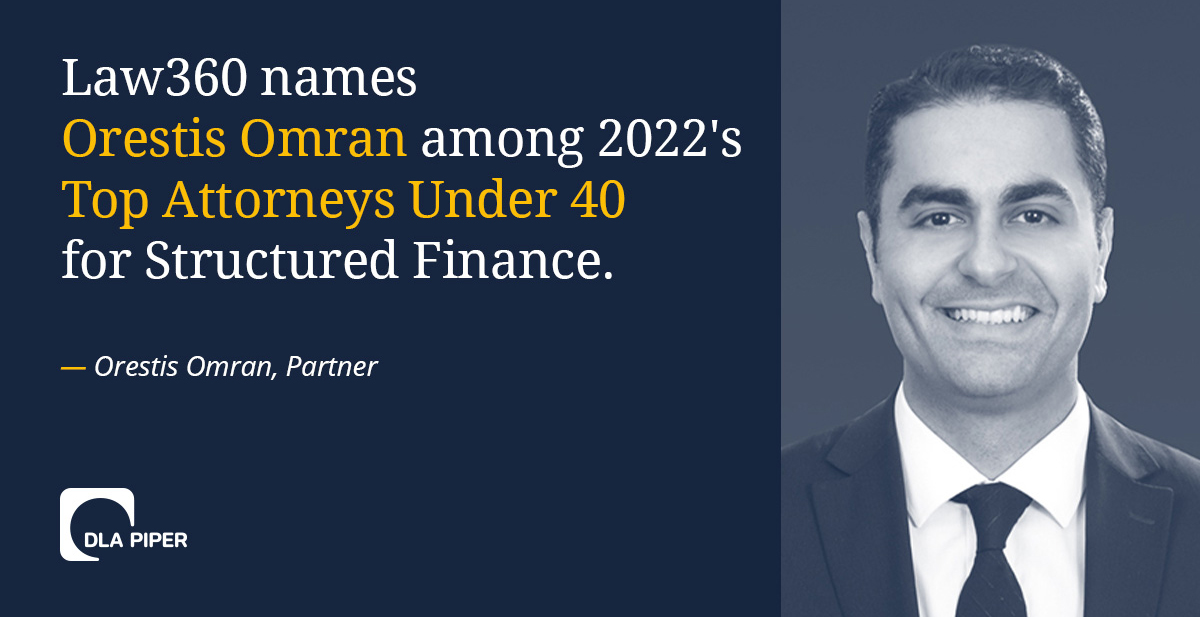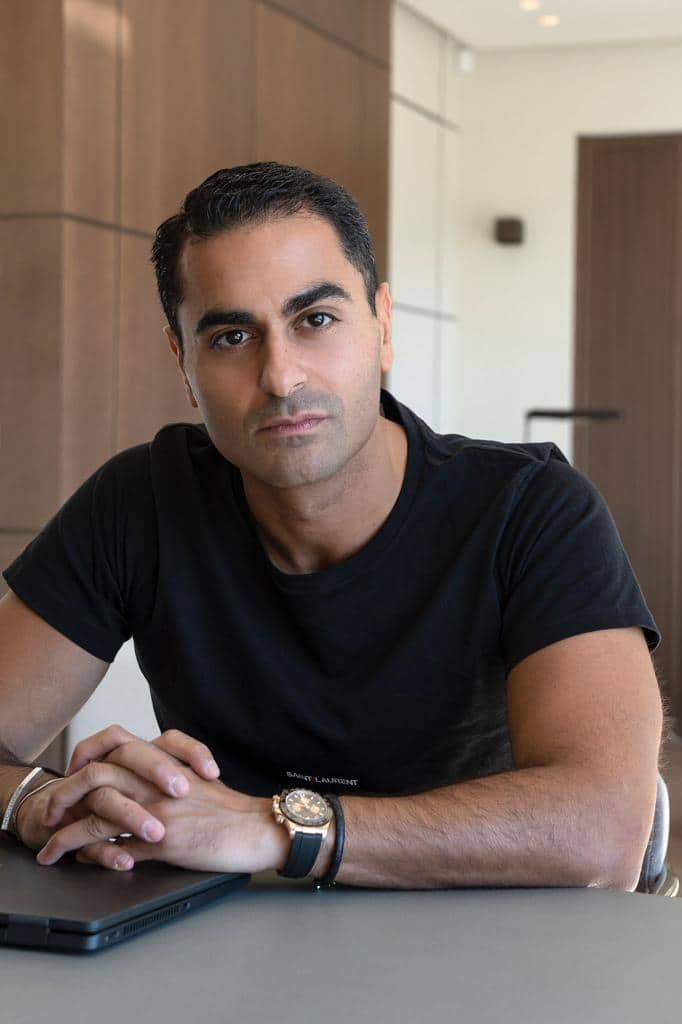
Stories Talk | Presentation Skills and Effective Storytelling
Stories Talk | Presentation Skills and Effective Storytelling
Orestis Omran is on the list of the world's leading lawyers under the age of 40 of the American organization LAW360, in the category of banking law and international capital markets. He is the first and only Greek lawyer to have achieved this important honor while he continues to win legal victories in the big law firm in which he is also a shareholder.
By Mia Kollia
Translated by Alexandros Theodoropoulos
Greek lawyer, Orestis Omran, who is a distinguished figure internationally has developed a strong ability regarding common sense, a broad perspective on the world and things and most importantly, he is characterized by his clarity, directness and deep kindness. All these are certainly notable qualities of his legal status. At the same time, he is a delightful debater and a cosmopolitan traveler. His grandfather came from Egypt and his personal journey is full of toil, effort and moments of deep satisfaction.
- So what do you do professionally at the moment?
At the moment I am a partner at DLA Piper and head of Greece and Cyprus - I also practice law in America and England. Most of my time is spent doing cross-border corporate and financial transactions in Europe mostly, with an emphasis obviously on Greece. I live in Brussels, but I actually split my time between Athens and Brussels. Every 10-15 days I am in Athens.
- Could you tell us about your very interesting background?
I grew up in Athens, in Ampelokipoi. I studied at the Experimental High School and then I entered law school. Then I left for the US on a scholarship for a master's degree at the University of Chicago and that was when I started feeling what I was really meant to do. My PhD is in comparative constitutional law, something I've always had a love for, and I initially considered pursuing an academic career. But going to America, I saw how the economy and financial companies work internationally, thus, this experience opened my eyes. I saw a different world, which is hard to get to know through Greek law schools because things are more theoretical here and more focused on teaching. In America everything is more commercial, let’s say, they associate things more with the economy. There, I saw the operation of the big law firms, which do cross-border transactions and are very active. I saw the way the profession is practiced and what opportunities there are for someone who wants to pursue an international career in law.
- How come you didn't stay in America?
There was a provision in my scholarship to return for 18 months to Europe. Because of this limitation I had to return after my postgraduate studies. But there is another reality, which I think is more objective. What I ended up doing, being at an American law firm in Europe, helped make my career path more focused than if I had stayed in America. Despite the fact that I became an American lawyer, the demand for non-Americans in American law firms is much more limited. So I think the wisest thing for a lawyer who wants to have an international career in relation to America is to be in one of their offices in Europe.

- How did you feel about your recent award?
A month and a half ago came my inclusion in the list of the world's top lawyers under the age of 40, in the category of banking law and international capital markets. It is quite an exclusive award, because the research done is really thorough. Of course I was very happy, because it is something that is recognized internationally and it came to tie in quite well with some other awards that I have received in the past. It was a great reward for me and I was very satisfied.
- What does being a good lawyer mean to you and what do you think sets you apart? What advice would you give to a young 18-year-old student of law? Also, how much does charisma count?
I think being a good lawyer is the outcome of two things; one can be worked on and the other maybe exists in us as a gift and we have to develop it. The first is the essential knowledge of the law and this is achieved with a lot of work and with many hours of reading. This of course includes an understanding of the law as well as the methodology of the law. That is, how we formulate what we want to say legally and how we make it understandable not only to our clients but also to a court - it’s not enough to parrot a provision.
So knowledge is a prerequisite. However, charisma is what will help you to get the essential knowledge and apply it to the needs of each client and their financial context. It is extremely important to understand what your client's interests are and what exactly they want to achieve with you as their lawyer.
The commercial side of law is the most difficult for a lawyer to cultivate, unless he has a little of it in him. To marry the essential knowledge of the law with what clients want and to be really useful to them is an art in itself. I was able to develop this at a young age and became a partner in my firm at the age of 32.

- You have also studied economics haven’t you?
I haven't studied economics, but I was at the school of Chicago, in the law and economics department, where they took a very interesting approach which definitely helped me. In practice I spent a lot of time reading things by myself and understanding the sectors of my clients (funds, banks, governments that issue government bonds and others).
- Is there an ethics of law or is it just a "mathematical equation"?
Of course there is an ethics of law or at least of some areas of law. In America, many say that lawyers make rich people richer. It's an approach I don't entirely share. I believe that by helping even large companies, we are helping their employees through them. By helping governments on major issues, like the Greek government on the Recovery Fund issues, again there is a positive impact on people's lives. We always have the social footprint of our work in our minds and I won’t hide from you that many times, in cases where our client has been wronged, we come closer to the moral side of the law. Certainly, however, there are not only negative clichés about lawyers, there is also the positive side of defending the wronged people.
- Is there any possible failure in your field and what that failure could be?
Failure is when someone ceases to win the trust of their customers either because they perform worse than their competitors, or because they objectively don't perform well and cannot satisfy their customers' expectations. Fortunately, I haven’t experienced such moments of failure, but I have certainly experienced moments of insecurity. But I'm always trying to fix things that might not be going as well as I'd like.
- Is there time for personal life? Because you really do look very busy.
I strongly believe that if we want something, we can always make time for it. One way is perhaps to sleep less than the average person - which happens to me anyway. Certainly, if someone is organized, he can save time for his personal life as well.
#HisStory